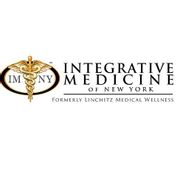4 FAQ About Degenerative Joint Disease

According to the Arthritis Foundation, more than 50 million adults and 300,000 children have some form of arthritis. Of the many types, degenerative joint disease is the most common. If you or a loved one have been diagnosed with the disease, you most likely have some questions. Here is what regenerative medicine professionals want you to know about this condition.
Common Questions about Degenerative Joint Disease
What is it?
Degenerative joint disease—also known as osteoarthritis—is a condition in which the cartilage between joints disintegrates or degenerates, causing swelling, pain, and stiffness. Many factors can cause cartilage to deteriorate, although trauma and gradual wear and tear over time, combined with a lack of preventative care, are most common. Genetics can also play a role. People with a family history of arthritis are more likely to develop the condition.
How common is it?
I t’s particularly prevalent in athletes, who are continually pushing their muscles, ligaments, and joints, causing stress and strain. However, it’s also common among older adults and people with musculoskeletal issues such as scoliosis and arthritis, whose posture and movement is affected as a result. More than 50% of adults age 65 and older are affected.
t’s particularly prevalent in athletes, who are continually pushing their muscles, ligaments, and joints, causing stress and strain. However, it’s also common among older adults and people with musculoskeletal issues such as scoliosis and arthritis, whose posture and movement is affected as a result. More than 50% of adults age 65 and older are affected.
What are the symptoms?
People with this condition typically experience pain, inflammation, and swelling. It may also impact endurance and mobility. People may also experience side effects such as weight gain, limping or loss of function, or bone spurs.
How is it treated?
Your physician or regenerative medicine specialist will recommend a treatment based on your particular condition and overall health. However, some common ways to treat this condition include physical therapy, chiropractic adjustments, massage, and nutritional supplements such as MSM and L-glutamine.
Regenerative medicine techniques, including stem cell therapy, are also highly effective. Your doctor may also prescribe steroids or pain medications, or suggest taking over-the-counter pain relievers to reduce swelling and pain. Getting active with low-impact activities like swimming or aerobics adapted for arthritis is also essential to regain function and strength.
If you’re a Long Island, NY, resident with degenerative joint disease, turn to the experts at Integrative Medicine of New York, PLLC, for help. In their state-of-the-art facility in Westbury, these professionals provide a broad range of innovative treatments including regenerative medicine techniques to treat degenerative joint disease and other forms of arthritis. Call (516) 759-4200 to schedule an appointment or visit their website to learn more about their range of services.
About the Business
Have a question? Ask the experts!
Send your question

